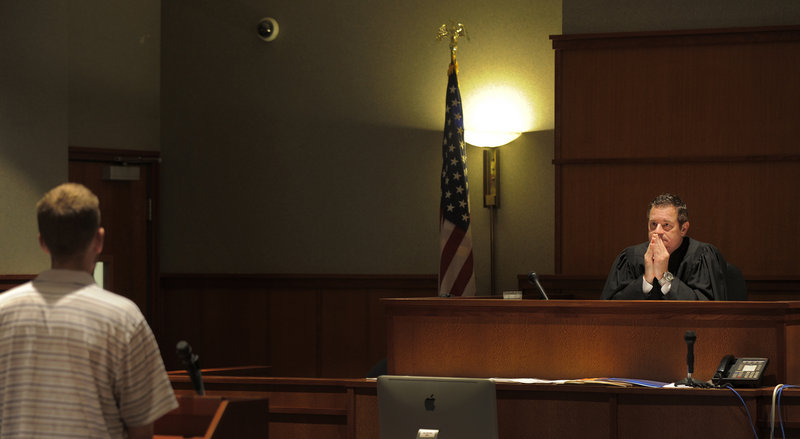Drug courts work because they are different.
They were invented by frustrated judges, prosecutors and defense attorneys who saw that what they were doing wasn’t working. They came up with a program within the court system where addicted offenders were given a chance to turn their lives around.
With the threat of a prison sentence hanging over his head, an offender would be released in the community under a probation officer’s close supervision. He would be required to be in treatment and make regular appearances before a judge.
If the defendant did what was expected of him and made progress, he could be rewarded. If he failed, he could go back to jail.
Now, more than 12 years after the first drug court was started in Maine, there is proof that the program works. Drug court graduates are half as likely as other offenders to be arrested within a year after completing the program, and when they do re-offend, they are less likely to commit a felony or a violent crime.
But even though these courts work, they don’t reach everyone. Taking part in the drug court program is voluntary, and not every addicted offender is eligible. Most cases move through other parts of the legal system, and it’s clear that the same conditions that frustrated the founders of the first drug court still exist.
Maine’s Department of Corrections, which oversees the state probation officers, is changing the way it operates in the hopes of lowering the recidivism rate of all addicts convicted of crimes, not just those in drug court.
Short jail stays for people on probation, the department has found, can be disruptive to an addict’s recovery. Serving as few as 10 days in jail for a bad drug test, an addict can lose his job or his home and come out less likely to succeed.
As a result, the department is looking for alternatives to jail time. This change in philosophy makes a lot of sense, but it comes into direct conflict with one of the major pillars of the drug court.
Participants know that they will be watched, and if they slip, they will be held accountable. That assurance helps people stay sober even when they don’t think that they want to get better.
The department is right to change its thinking on jail terms for minor probation violations — the old system wasn’t working.
But drug courts do work, and it doesn’t make sense to alter the part of the judicial response to drug abuse that has been successful. It would be better to let drug courts build on their success while the state tries the other approach with other offenders not in drug court.
Drug courts have always been different. That’s why they work.
Copy the Story Link
Send questions/comments to the editors.



Success. Please wait for the page to reload. If the page does not reload within 5 seconds, please refresh the page.
Enter your email and password to access comments.
Hi, to comment on stories you must . This profile is in addition to your subscription and website login.
Already have a commenting profile? .
Invalid username/password.
Please check your email to confirm and complete your registration.
Only subscribers are eligible to post comments. Please subscribe or login first for digital access. Here’s why.
Use the form below to reset your password. When you've submitted your account email, we will send an email with a reset code.